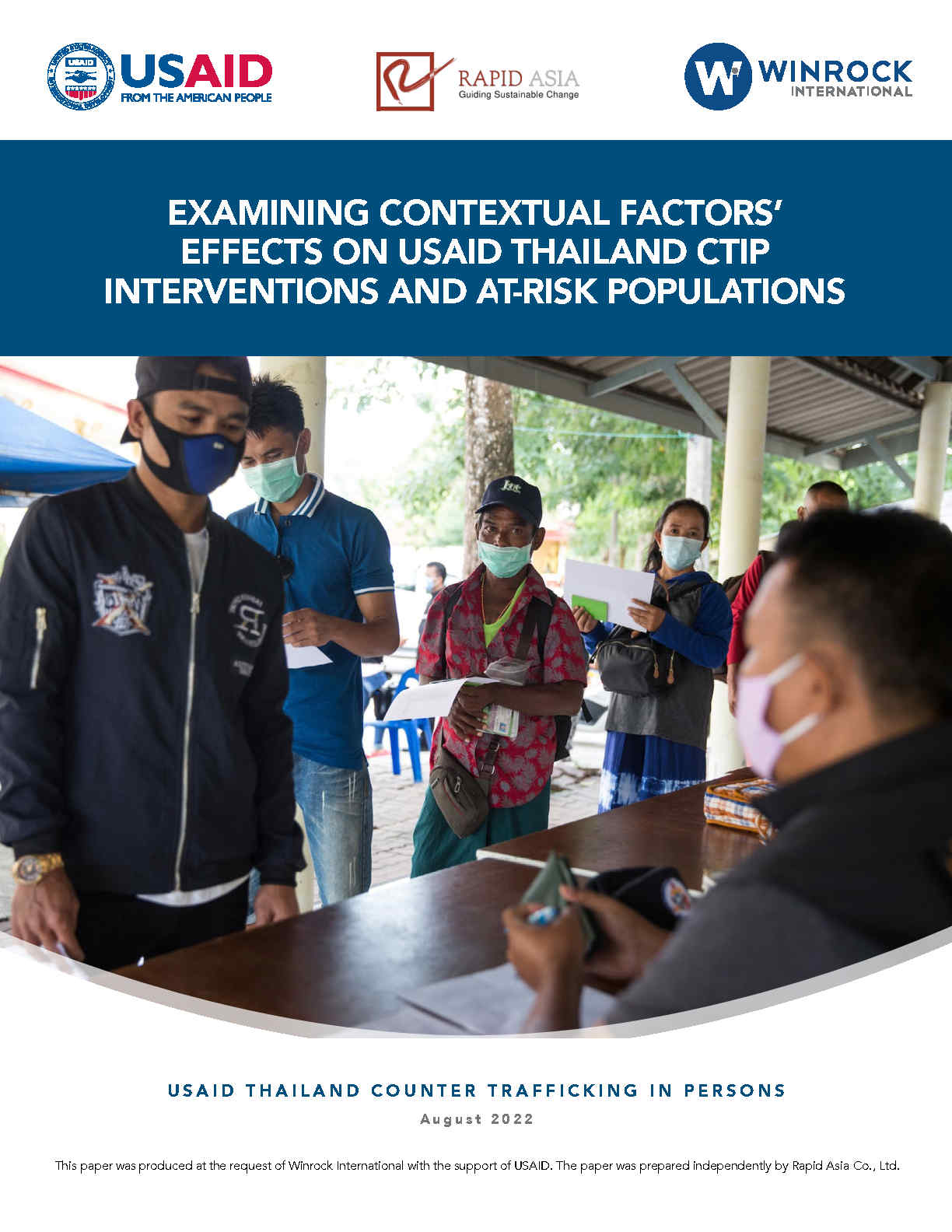In 2022, Rapid Asia conducted the End-line Evaluation for the United States Agency for International Development (USAID) Thailand Counter Trafficking in Persons (CTIP) project with the lead implementing partner, Winrock International.
As part of the End-line evaluation, Rapid Asia prepared the Learning Paper Series. This paper explores the learning question: “What key contextual factors in Thailand can affect USAID Thailand CTIP interventions and at-risk populations?”
This paper answer the learning question in detail through an exploration of six key contextual factors/learnings:
- COVID-19 related health and socio-economic impacts and restrictions created new vulnerabilities for migrants and challenges for the USAID Thailand CTIP project
- USAID Thailand CTIP staff and partners face challenges in their engagement with bureaucratic structures and processes
- Agriculture, fishing, and construction are sectors where forced labor and/or TIP vulnerabilities remain
- The expansion of armed conflict and displacement following the military coup in Myanmar is a new push factor for migration into Thailand, increasing vulnerabilities to TIP and forced labor among at-risk groups
- There is an emerging trend of Thai nationals being lured into TIP and forced labor in neighboring countries through online recruiting methods
- USAID Thailand CTIP staff and partners face challenges in their engagement with bureaucratic structures and processes
To read more about this paper, please click here.

